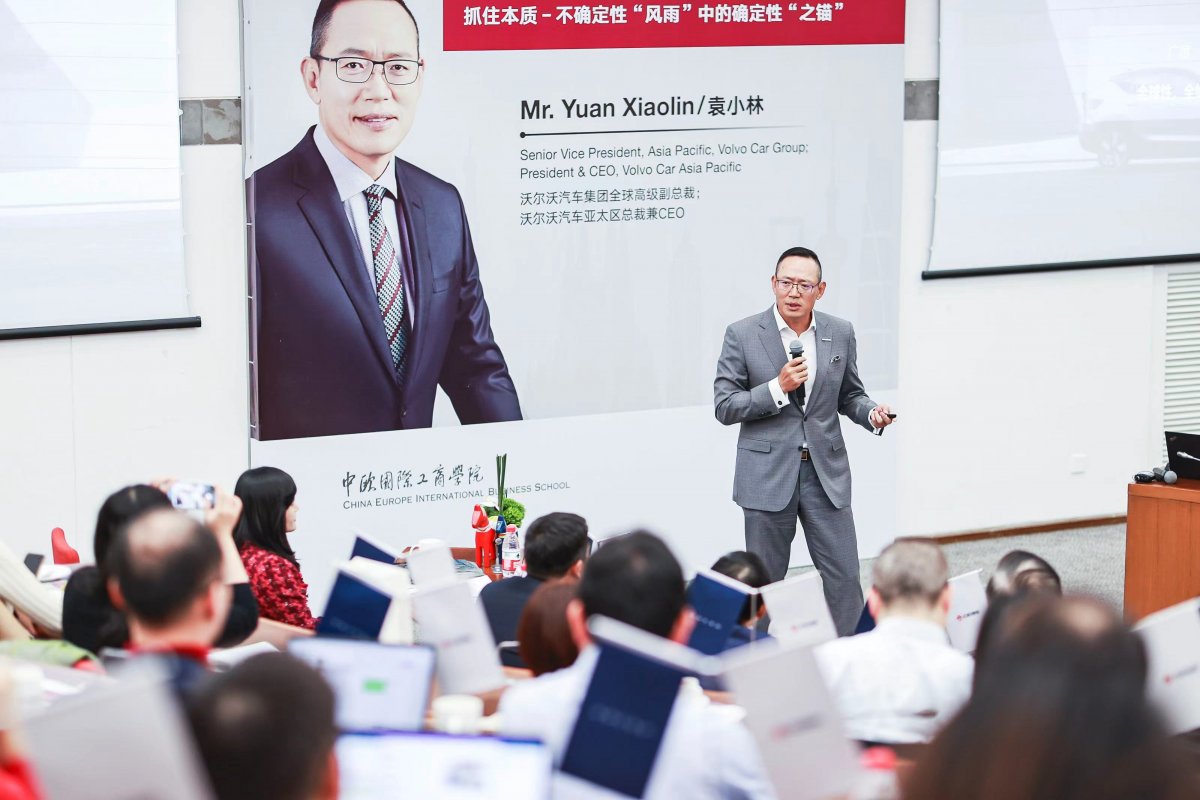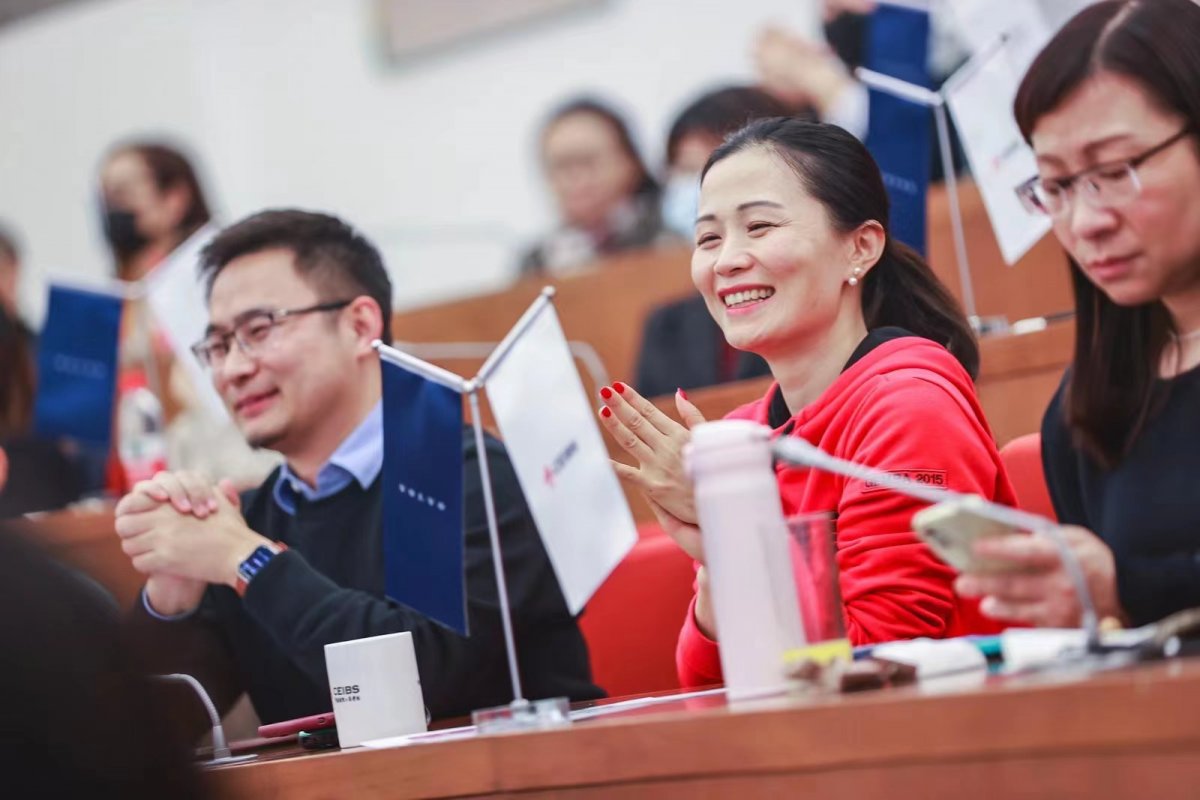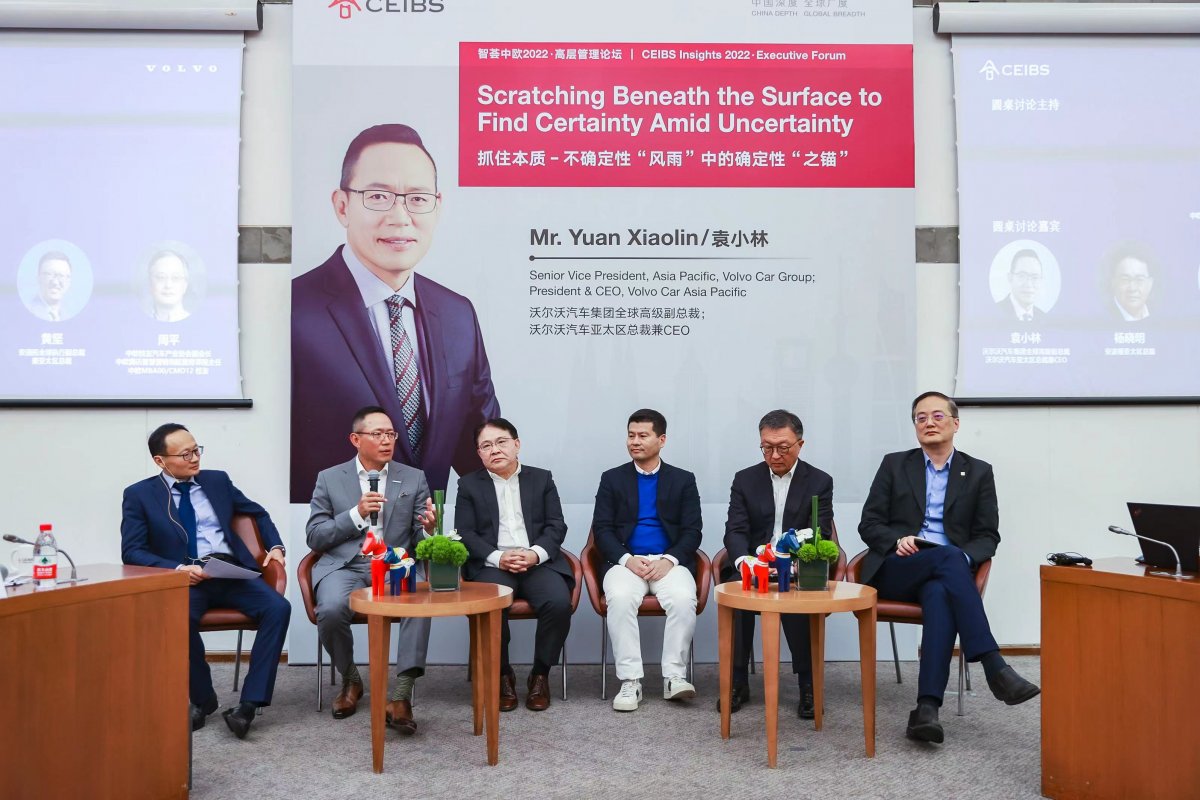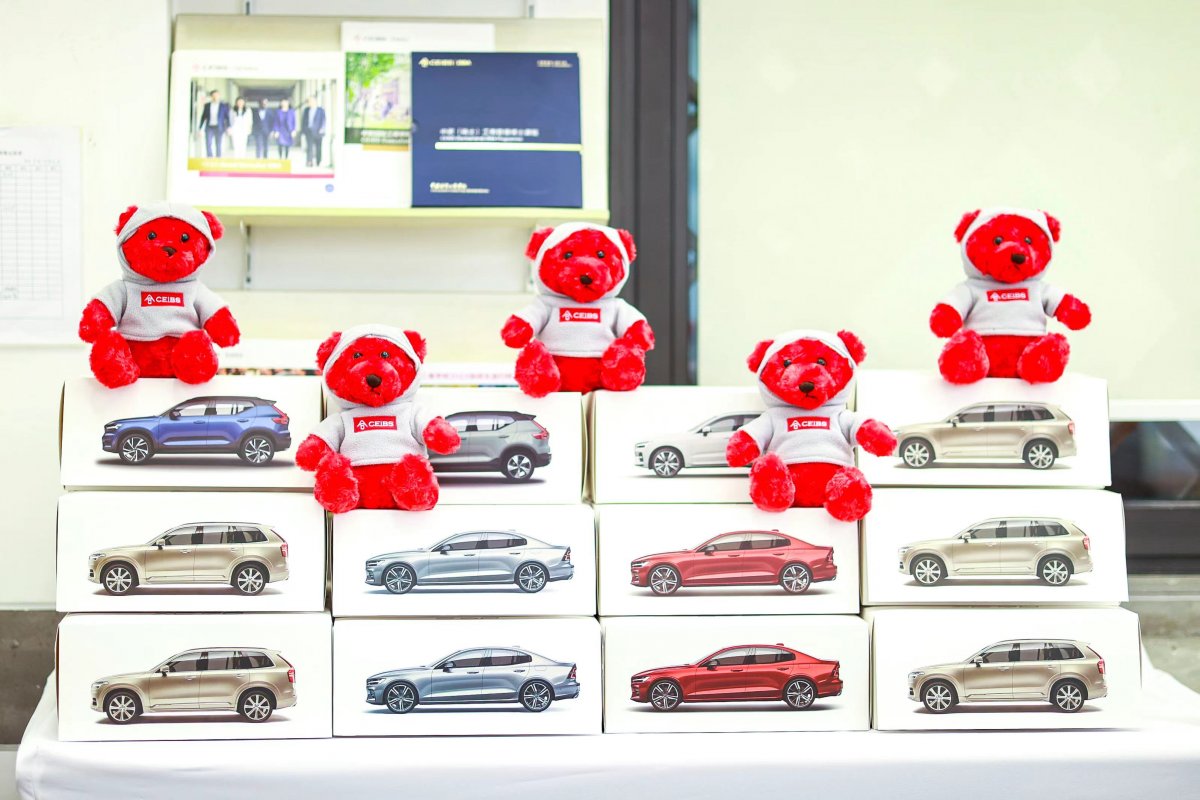Perspective, pace and persistence key to navigating uncertainty in China’s mobility sector
December 8, 2022. Shanghai – In a time of drastic global changes where “black swan” events are occurring more frequently than ever before, business leaders often face the daunting task of how to respond to growing challenges and steer their company through uncertain times.
External environmental factors are hard to control, but we can find certainty by identifying who we are, where we are going and how we can get there, Volvo Car Group Senior Vice President, Volvo Car APAC President and CEO, Yuan Xiaolin, said during a special Executive Forum at the CEIBS Shanghai Campus this evening.
During the offline event, Mr. Yuan explained how Volvo has won over the Chinese and global automotive markets over the past decade and offered his strategic insights into the future mobility revolution.
“For corporate managers, various industries are undergoing rapid changes every single day. Clear organisational positioning and corporate values can help companies understand their strengths and weaknesses and thus develop a strategic vision or ‘guiding star’ to direct the way forward,” Mr. Yuan told the packed audience.
In identifying the “how” element, he outlined three takeaways drawn from his personal experience as a marathon runner. First, take a step back and get a holistic view of the whole situation with broader depth and perspective; second, slightly reduce your pace and try to grasp the essence of things with a calmer mindset – slowing down is always the foundation of being quick; and third, be persistent.
“You’ll get to the final destination in the end, it’s just a matter of time,” he continued.
After serving as a Chinese diplomat, Mr. Yuan started his professional career with British multinational oil and gas giant BP. He then joined Chinese carmaker Zhejiang Geely Group in 2010 as Head of Mergers and Acquisitions (M&A) and oversaw the purchase of Volvo Cars, which was previously owned by Ford.
While many have regarded the deal as a miracle and thought of the acquisition as “a snake swallowing an elephant,” Mr. Yuan attributed the successful M&A to the right strategy, professional teamwork, and most importantly, effective execution.
“The acquisition was hard but also relatively simple. We initiated the strategy and got top professionals involved in the M&A process, including investment bankers, lawyers and accountants. We just got things done in a professional manner,” he explained.
After the deal was closed, managing a global enterprise was not an easy task due to cross-cultural differences and communication challenges across the headquarters and regional offices. As such, Mr. Yuan said, communication and execution is the key.
“As the market pace always varies from market to market, it’s important to find a proper balance by developing a united strategy, looking for consensus and adapting to the realities of each specific market,” Mr. Yuan said.
Innovation is another crucial factor that has driven Volvo’s development over the past decade.
“As a premium car brand originating from Sweden, Volvo Cars has built its own brand foundation through 95 years of innovation. We understand clearly that all innovation, even the spark of innovation, is not an idea that pops into one’s head, but something accumulated from perfect practice and execution, continuous hard work and improvement of the process. These are the roots of innovation,” Mr. Yuan went on.
Volvo has consistently led the way in prioritising safety amidst shifting technology-driven trends in the automotive sector, such as electrification, autonomous driving and connectivity.
For Mr. Yuan, it is critical to stay close to your brand’s core values in changing times, rather than pursue the spotlight.
“Pursuing the spotlight – trendy market topics – may be a great way to increase a brand’s exposure for a while, but what determines the end result is focusing on core values and strengths and bringing real value to customers. This focus will ultimately make the biggest difference, especially in times of uncertainty,” he concluded.





















